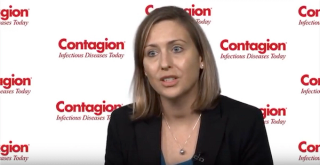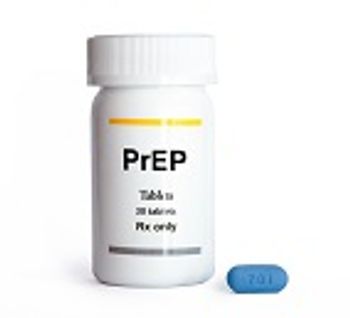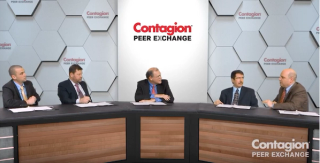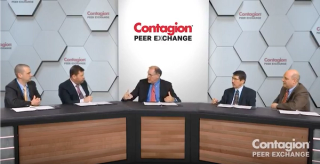
Prevention
Latest News
The treatment duration for uncomplicated gram-negative bloodstream infections (BSIs) has traditionally ranged from 7 to 14 days. However, recent retrospective studies and meta-analyses have observed no differences in clinical outcomes in patients treated with shorter courses compared with prolonged courses, especially with urinary sources of infection.
Latest Videos

CME Content
More News

A next-generation phenotyping system is seeking to revolutionize antibiotic susceptibility testing in an effort to begin treating patients faster and to combat antibiotic resistance.

Health system continues to lead the way in stewardship; hopefully more will follow.

Are surgical pens giving insight into unknown contamination in the OR?

WHO has compiled a list of the top 10 threats to global health in 2019 and 6 of them are infectious disease-related.

As the government shutdown passes the 1-month mark, Contagion® investigates how it is affecting public health agencies.

A team from the Biozentrum at the University of Basel in Switzerland determined that they could successfully manipulate T cells in mice to preserve allogeneic tissue transplants, but maintain pathogen-specific immunity.

A large percentage of individuals with a documented allergy to penicillin can actually be treated safely with this class of antibiotics. It just requires careful evaluation and management on the part of health care providers.

The results of a new study on drug repurposing indicate that the process may bring new hope in the battle against infectious diseases.

While the United States has seen significant increases in pre-exposure prophylaxis (PrEP) use among those at risk for HIV infection, PrEP uptake rates are still low overall in men who have sex with men, as well as in transgender individuals. A new study examines how a behavior model may help increase PrEP use in these at-risk groups.

When taken consistently, PrEP can reduce the risk of HIV infection by 92%. So why aren’t more health care professionals prescribing it to adolescents, who continue to have an increased HIV incidence rate nationally?

Updated guidelines will hopefully spur more clinicians to test for and treat influenza in people with symptoms whether they’re high risk or not.

Understanding the spiral of usage and resistance might help us stop prescribing practices that fuel AMR.

The FDA approved the vaccine in 2016 for adults between the ages of 18 and 64 who are traveling to areas of active cholera transmission.

With early season flu vaccination rates up from 2017-2018 early season rates, new pediatric influenza deaths around the country are prompting health officials to call for even higher vaccination rates.

The vaccine is approved as a 3-dose series, which consists of a 0.5 mL intramuscular injection, administered at 2, 4, and 6 months of age.

Clinicians who ask the right questions of patients can help identify those at risk of contracting HIV and who might benefit from PrEP.

We look at how we fared on our New Year’s resolutions from 2018 and also set some new ones for 2019.

In a new study, researchers with the US Department of Veterans Affairs found that metronidazole is as effective as vancomycin for treating mild cases of Clostridium difficile infection, despite new guidelines no longer recommending metronidazole.

Jason Gallagher, PharmD, FCCP, FIDP, FIDSA, BCPS, reflects on 2018 and his first full year as Contagion®'s editor-in-chief.

A novel study from Seddon and colleagues adds to the body of evidence that supports what antimicrobial stewardship programs are so often challenged to do, early de-escalation.

Patients with uncomplicated gram-negative bacteremia respond just as well to a 7-day course of antibiotics as they do a 14-day regimen, according to a new study.

Providers in other states can learn from this multiorganization collaborative that aims to improve antimicrobial utilization and prevent the emergence of antimicrobial resistance across South Carolina.

Dr. Goff and Mr. Nosta discuss how to use Twitter to communicate about infectious diseases and antimicrobial stewardship.

A collaborative, international effort aims to answer tough antimicrobial resistance questions.

Is it time to screen for these bacteria and modify colorectal surgical prophylaxis?








































































































































